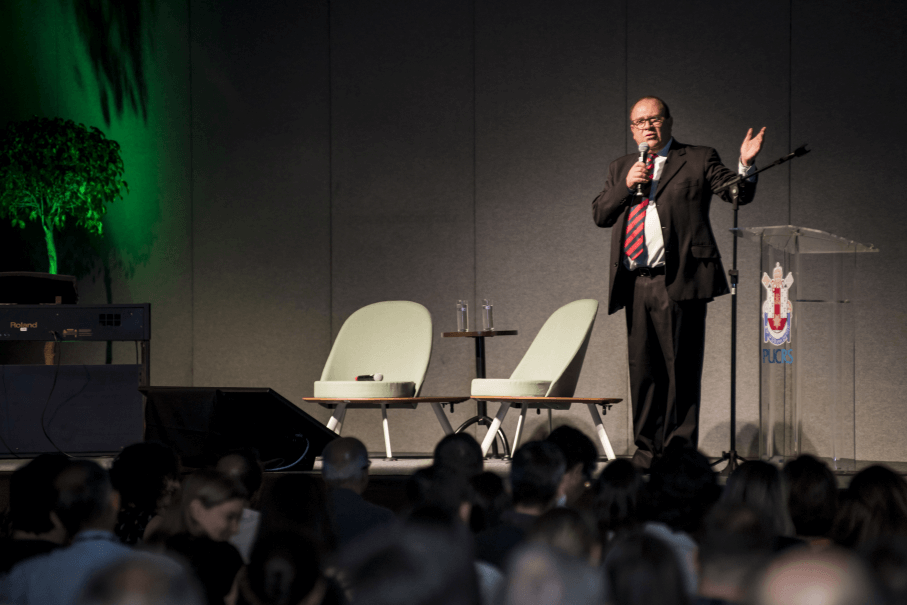Universitat de Barcelona speaker discusses the challenges of seeking meaningful learning in view of the proliferation of information
Universitat de Barcelona professor, Dr Juana Maria Sancho Gil, delivered the opening talk of the Academic Development Seminar for PUCRS’ faculty and staff last week. Juana looked at the current scenario of higher education, its challenges and propelled the audience to build knowledge and create the future. Because the numbers she presented were impressive – in 1996, 20 million of words for technical information and 1,000 books per day would be published; in 2010, this number rose to 50 million of scientific articles and, in 2017, 3,8 million of internet users – she wondered: “If everything is available, why do I listen to the teacher?”.
In her view, the multitude of data is irrelevant since it is necessary to promote real-life teaching, problem-solving situations, the discovery of the world in groups and all this needs to be shared with everyone. “To learn is to think about things we had not yet reflected upon”, claimed she.
Juana went to to say that the role of the teacher is to encourage possible connections. “We are like actors in a monologue. However, we must actually become movie directors and each character will have a role to be played”, said she. She adds that learning is a time-consuming activity that involves reflection, consolidation and internalization as well as physical and psychological manifestations. It also poses a challenge for current knowledge structures and beliefs and has no connection with time or space. “A great deal of what we learn, we learn in bars rather than in classrooms.” In her opinion, many teachers replicate the methods they used for their own learning but forget about continuous development. “Why do some curricula include certain subjects but ignore others? We need to explore the non-leaning areas.”
Juana holds that the current reality of the universities is characterized by the proliferation of digital information and technologies, the increased demand for higher education, the requirements of the job market and the (re)discovery of education as a business, as institutions that are more profit-oriented are gaining momentum. The conference was mediated by School of Sciences professor, Dr João Batista Harres, who also serves as Coordinator of Educational Affairs.
PUCRS 360°

Photo: Camila Cunha
At the seminar, PUCRS President, Br. Evilázio Teixeira, reinforced that PUCRS 360° is not an advertising campaign but an attitude. “The transformation has academic roots as changes are being implemented to the way we do research and teach”, said he. For Br. Evilázio, one of the key concepts is to offer comprehensive development. “This can’t be a cliché. We ought to produce excellent professionals and individuals fully committed to the construction of a better world.”
The Vice President of Undergraduate Studies and Continuing Education, Br. Manuir Mentges, highlighted that PUCRS will start he year with eight schools in full operation. He mentioned the actions taken to revamp classrooms, laboratories and offices, the Rua da Cultura and the remodeling of Building 15 which includes lounges, service areas and other areas devoted for innovative academic practices. Dr Teixeira said that an area as large as 12,000 m2 was renovated.